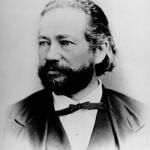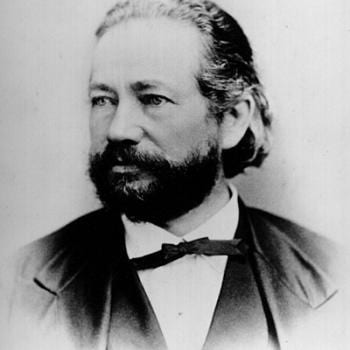
I’ve been tweeting some snarky things about the cult of “expertise” in academia, the proclivity for rigid gatekeeping of its members. The impetus for my hot-take commentary is the recent incident involving the Veritas Forum’s shameful disinviting Neil Shenvi from an event on race and Christianity at which he was to debate Dr. Willie Jennings. You can read about all of that in this report by the Christian Post and Rod Dreher’s take at the American Conservative, so I won’t rehash the details. At the end of the day, a good cancelation will probably prove a well-deserved boon for Neil’s popularity. In any case, Neil has, per usual, handled the whole fiasco with grace.
My aim here is to make clear that my, I think appropriate, snark does not spring purely from frustration. Nor does it flow from a prideful assumption that I could never succumb to the arrogance that sometimes accompanies intellectual achievement. And of course, I say sometimes. I think of some of my academic heroes like Robbie George or the late Roger Scruton who never have (or did) demonstrated a superiority complex despite their evident brilliance.
Rather, my open disdain for the pride of expertise comes from my own experience of the same deep within myself. Indeed, it was probably lying dormant within me, festering for some time before I smelled its stench.
A few years ago, when I was about midway through both of my graduate programs (one law, one theology), I was teaching adult Sunday school classes at my church. At the time, I had taught 20-week courses on various topics, the Reformation, Psalm 119, and others. But I was beyond excited when I was permitted by the elders to lead one on the doctrine of God, one of my favorite subjects. I decided not to sell the members of my class (about 30-40 people) short, but rather to dive right into the elements (and language) of classical theism. This required devoting several weeks to classical metaphysics and related themes. It was a blast! I was proud to report to fellow seminarians at the time that, contrary to conventional wisdom, the people were eating it up, and finding comfort in the a se, immutable, impassible God. There was no need to dumb it down, I said, and I think I was right.
In the course of teaching that class, which lasted longer than any I had yet taught, I noticed two things, one about certain attendees of the course, and one about myself; both of which were deeply convicting.
First, I noticed that the most teachable members of the class were, in general, the least educated. Those of the professional class with advanced degrees were often resistant to the new information they were encountering, and it was new for everyone there. It was the latter group that most often transitioned from inquisitive to argumentative in the course of a lecture. They were the one’s trying to trip me up or asking loaded questions, and etc.
I once had a professor who advised me that the only way to really get an education was to allow one’s self to be taken, so to speak, by a course. That is, to embrace with an open mind, absent ulterior motives, what the teacher was trying to convey. As soon as you attempt to make it about yourself, your own interests imported into the course, you lose the chance to learn. I have been guilty of this myself on more than one occasion, and I gained some sympathy for educators whilst teaching on the doctrine of God. I vowed to never again do the same thing, though I was not always successful. Selfishness, self-absorption, and navel gazing are difficult habits to shed.
The second thing I came to grips with in that particular Sunday school class, which now seems so long ago, in many ways flowed from the first. I realized my own pride predicated on my own expertise, such as they were, which were artificially elevated in the context of a class full of average Christians in an average size church.
One Sunday morning, I was lecturing through my material, which I always dutifully prepared and labored over–I thought, purely to God’s glory. If I remember right, I was making some point that hinged on certain metaphysical categories previously covered, which I knew were archaic and obscure to most of my listeners. I asked a question to that effect, expecting no answer to come. A chance to, once again, prove my intellectual prowess–a subconscious thought I later unearthed. To my surprise, a lady on the front row–a sweet and attentive but decidedly blue collar lady–answered the query without hesitation, reciting back to me, almost verbatim, various Aristotelian signifiers. I was, in that moment, both stunned and overjoyed. Something was getting through; it was sticking! Almost immediately, another attendee used the preceding comments as a springboard to launch into even further commentary that evidenced true absorption of the material. Again, I was, in that moment, elated but also surprised. It was a good and memorable class, one in which the Lord graciously allowed me to see some fruit of my labor.
It was only later in the subsequent week that he also graciously revealed my own pride. As I reflected on my own framing of that particular class, the questions imbedded therein, I realized that my motives were not entirely honorable. I had to admit to myself, and confess to God, that I had arranged a significant portion of my months-long discourse in a way that elevated myself, that allowed me opportunity to exhibit my own learning, my own “expertise,” in an environment where I knew I was safe from real challenge or contradiction. In truth, I had no rival in education or knowledge present. And I knew it. But that Sunday, a bus driver and a janitor had proven they could just as easily and swiftly–maybe more swiftly, indeed, I had agonized over the material for nigh on a year before I relayed what they had picked up in a few short weeks by then–grasp the decidedly good and true and orthodox knowledge I was conveying. They weren’t just parroting it back to me, they were becoming conversant.
On the one hand I was genuinely and immensely proud of them, on the other I had been arrogant to think I had acquired something special, that I was an indispensable gatekeeper and herald of otherwise inaccessible knowledge, and that I would get to play the part of “expert;” they the part of dutiful but dumb disciple. All of this in the context of a Sunday morning class. How shameful! My stomach was in knots about the whole dynamic for the entire week. I hope, as I intended, that I was able to fully abandon such an attitude, but I quickly realized that I was, in fact, wrestling with such a thing. Post-confession, I saw it crop up all the time. I loved playing the part of expert, even on the seminary campus amongst more (on paper) able interlocutors. It was all a very gross attitude. I must have been a terribly pompous, unenjoyable person at the time.
All of this to say, I have seen first hand, in the depths of my own depravity, the arrogance that “expertise”–which I contend is wrongly defined by the prevailing opinion–sometimes breeds. I hope that I shall never again find myself under its yoke. This does not entail an abandonment of intellectual rigor, academic standards, or any of the rest. we don’t have to accept all arguments, all claims as equal. We aren’t required to entertain hogwash.
But it does entail that we, no matter what we attain at that level, never become so prideful that we fancy ourselves sole guardians of the truth, unattainable to less credentialed people. It means we don’t make a cult out of expertise and its companions. It means that we accept truth from whatever vessel delivers it, and that we don’t avoid said delivery just because it threatens our self-contrived self-importance. Unfortunately, I consider the theological expert class within greater evangelicalism to be the worst offenders in this regard, which cuts against their stated mission, to protect and defend and expound the deposit of truth delivered once for all to the church. This is lamentable, but I don’t lament it from a posture of pride, like the Pharisee in Luke 18. I lament it knowing that I am that man.
Image credit: Unsplash/@vm32











